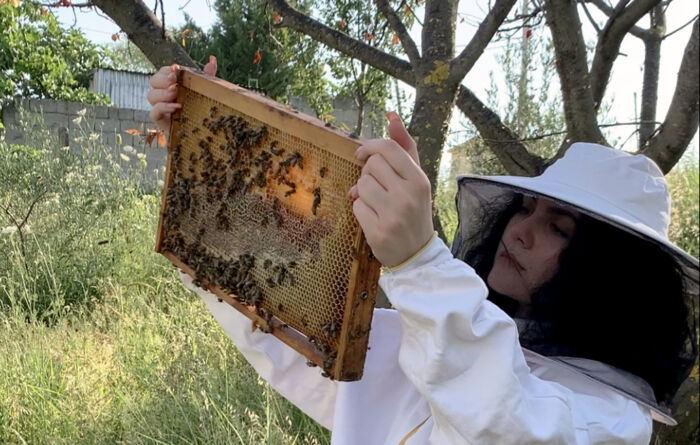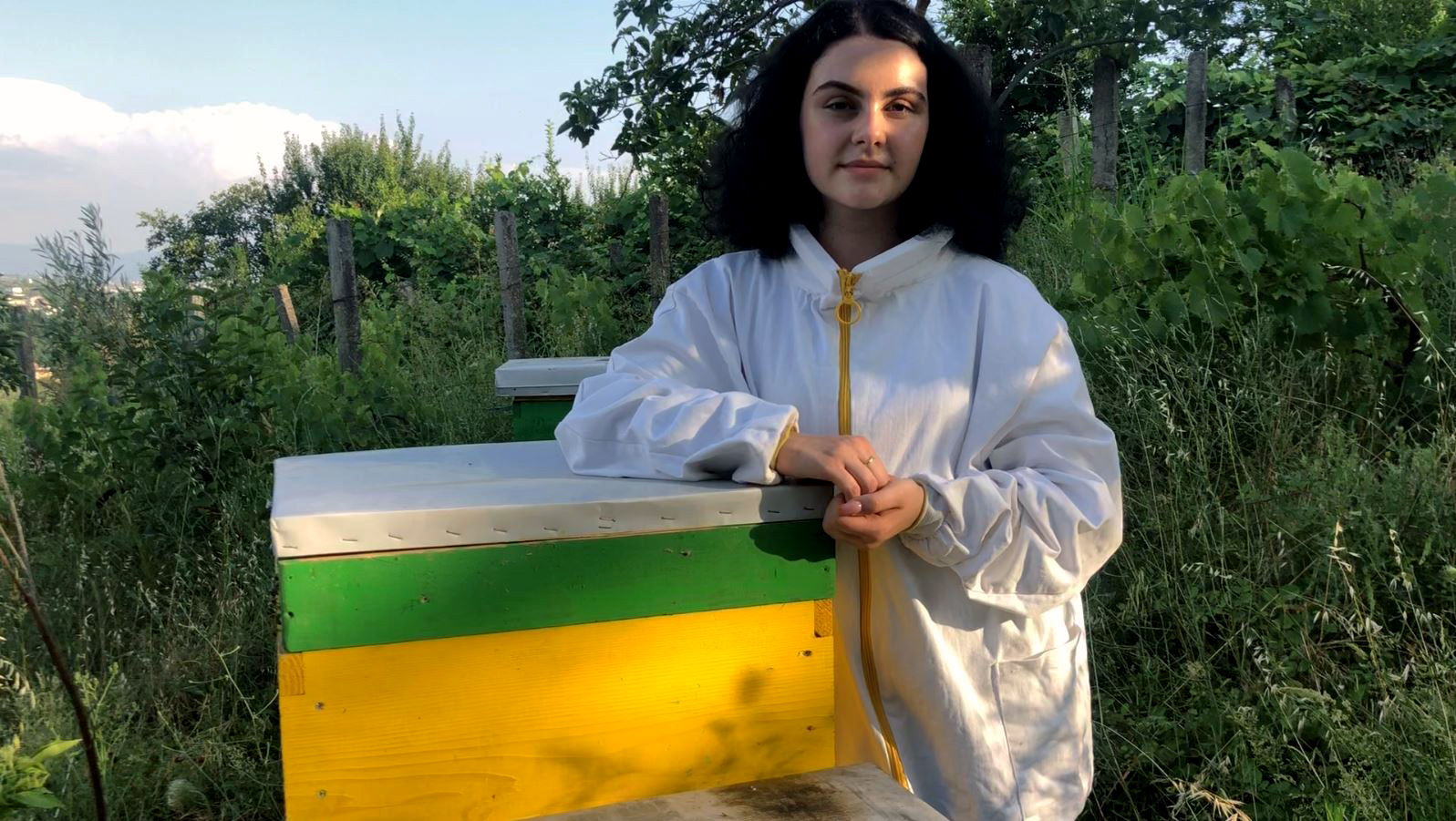“Since I was 8 years old my parents always took me to the bee parks with them. I loved the nature and I loved watching my parents work with the bees. I remember finding it so intriguing and casually asking: ‘How can some small insects produce the sweet honey we consume at home?’ Seeing the interest I had, my parents suggested that I get more involved in beekeeping, so the next time we went to the bee park I held a honeycomb frame for the first time,” Alesia recalls some of her first encounters with beekeeping.
Her interest and knowledge in the field escalated very quickly, from watching the bees from afar, to participating in international contests about beekeeping. All of this resulted from her devoted attitude towards the bees. But she admits that she was lucky having a father who is a beekeeping expert.
“As a curious person I ask my dad about everything related to bees and he serves as my encyclopaedia. This relationship with my dad has only made me love working with bees more. Beekeeping is a passion for me, it’s a safe space and a relaxing activity,” says Alesia, the youngest of the Malutaj family of six.

As a young person aware of global trends and the challenges that we all face worldwide in terms of climate change and burning environmental issues, she is particularly concerned with the situation around the bees as critical pollinators that support ecosystems and natural resources.
“Being a biology lover and future medical student has helped me understand the importance of bees and beekeeping in our world. With the course of events regarding climate change, we have seen the bee population has reduced. If bees don’t pollinate the plants, they don’t reproduce, and with that being said the whole food chain is destroyed,” says Alesia.
Having in mind this crucial role of the bees Alesia says that she would love to see beekeeping more valued as a job. And this is the type of change that she would like to see on the ground, in her community, that will improve the life of her fellow beekeepers, villagers and farmers.
“Beekeeping should have a proper importance in the food market. Bees and beekeepers can play an important role in improving food security,” she says.
She argues that beekeeping should be seen as an entrepreneurship opportunity, especially in Puka with all the natural assets in its possession.
“I think it can be a very good business opportunity, but only if handled correctly and with the proper care and professionalism. Migration in Albania is a very complex concept with many factors underneath, ‘loss of hope’ being one of the prime ones. But creating windows of opportunities such as beekeeping jobs and businesses can bring hope to young people,” says Alesia.

Beekeeping has proven to be one of the best practices of the Puka rural community to improve food security and the livelihoods of its inhabitants with low investment costs. But most importantly this activity is also contributing to maintaining biodiversity and environmental conservation.
By becoming an integral part of the region’s agricultural activities, more young people are taking up the opportunity to learn and practice beekeeping.
With the support Stockholm Consumer Cooperative Society, We Effect and partner organisation AgroPuka, the young beekeepers from Puka participated in trainings for beekeeping, from farm management to marketing of bee products.
“I took part in all of them. Also, I have had the support of AgroPuka twice when I have participated at the International Meeting of Young Beekeepers (IMYB) in Prague and in France,” says Alesia.
Describing it as an unforgettable experience, she says she will always cherish it, especially after achieved such a great success. “My biggest pride regarding beekeeping is winning the third place in a competition like IMYB, where more than 20 countries from all around the world participated.”
“Beekeeping is something that will stick with me for a very long time. Even when I go to university, spreading information about the importance of beekeeping is something I look forward to,” says Alesia.
